Thanks for joining me on this Teaching Kids About Character alphabetic journey. Today’s topic is B is for Behaved!
Amazon Affiliate links are included in this post. Please see my Disclosure here.
What Drives You Nuts?
First, I want you to take a minute to think about all the things your children do that drive you just nuts! I know this will be easy! Lol!
Is it when you have to get out the door and they just don’t want to get their shoes on? Is it when they don’t seem to listen when you want them to stop doing something? Is it their behaviour when they want something that they just can’t have? Is it whining? Is it yelling and hitting?
I know I’ve heard all of these things from my friends and experienced almost all of them myself at some point with Onetime (my 2.5 year old son). It can be so frustrating to feel angry with your child, and feeling helpless to change their behaviour is even worse!
Testing Limits
When Onetime started to walk, I was astonished at how early he began to test limits! Timing-Out a one year old seemed overly harsh to me, and I wasn’t even sure he would connect that kind of consequence to his behaviour. Most of what I wanted help with was how to get him to cooperate with what I wanted or needed him to do.
Well – I’m one of those people that when faced with a problem – I read! About 20 parenting books later (and several parenting courses), and I have found 5 strategies that seem to really work like magic for my son.
Before I share those though, I want to first explain that there were a couple of books that completely changed my mindset about raising children and dealing with challenging behaviour.
Positive Parenting Gurus
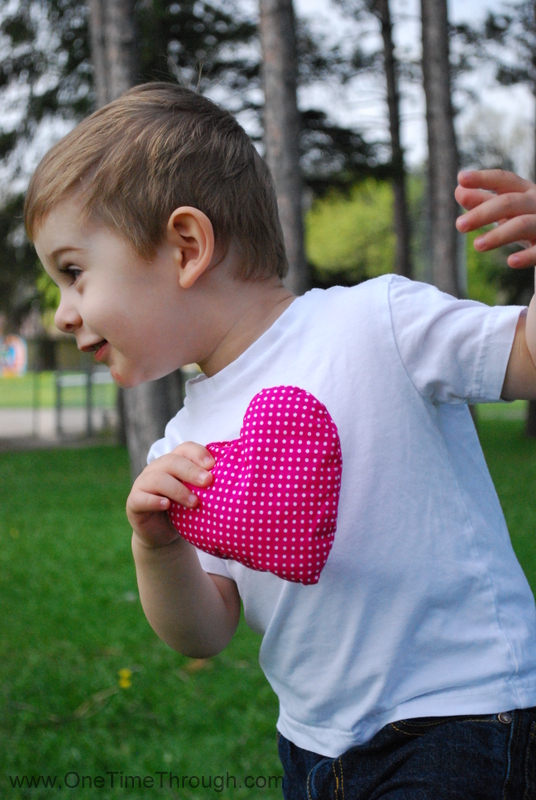
Probably my biggest parenting influence is Alfie Kohn and his book Unconditional Parenting: Moving from Rewards and Punishments to Love and Reason
His big idea about kids is that we need to work “with” them as parents and not waste our time trying to “do to them.” I liked that idea – after all, the last thing I want to be is an over-controlling parent.
Alfie Kohn argues that we shouldn’t punish our children. I know…this is shocking! After all, how else do we deal with “misbehaviour”? We have to let kids know when they are acting incorrectly don’t we?
Whether you agree with his beliefs or not, he makes an excellent point when he says that kids (or adults for that matter) will never cooperate willingly or begin to behave appropriately if we do things to them that make them feel bad. Don’t you think that’s true?
Just think about any time that someone has punished you. Did it help you feel more positive towards them? Did it make you want to “behave”? Exactly.
Judy Arnall‘s book, Discipline Without Distress is an excellent overview of normal child behaviour at various ages and she made me realize that how you view your child’s behaviour determines how you will respond to it. She also has tons of strategies to use for responding to a variety of challenging situations.
I learned from her to always attribute the best possible motive to my son’s behaviours (at least until he has proven me wrong!) There are lots of innocent reasons that children “misbehave” – they can be overtired, hungry, overstimulated. Rarely, are they trying to challenge you or make you upset! Kids are too self-centered for that!
The third biggest influence on my parenting style is the book How to Talk So Kids Will Listen & Listen So Kids Will Talk by Adele Faber and Elaine Mazlish. They have so many great tips for proactively teaching your child, but the biggest idea that I took from them is that we have to acknowledge our children’s feelings first – before anything else – when they are “misbehaving.” Such a simple idea, but such a transformative one for me!
So – here are the 5 powerful parenting strategies that I have found to proactively deal with my son’s challenging behaviours. No time-outs, no rewards, no bribes, and no punishment involved.
Strategy #1: Acknowledge Your Child’s Negative Feelings
The idea here is that if your child is upset, angry or frustrated, they are not going to listen to anything you say, or respond positively to anything that you do, until they know you care about how they are feeling at that moment.

The easiest way I have found to do this is to say something like:
“I can see you’re really _________!” (frustrated/mad/sad/upset)
OR
“That can be really _______(frustrating, upsetting) when ________. (“we have to go and you want to stay,” OR “you want some cookies and I have said no”, OR “you don’t feel like having a bath and we are having one to get clean.”)
Time after time, I have seen how just this one simple acknowledgement takes the steam out of my son’s negative reactions. He knows I get how he’s feeling.
It doesn’t change the fact that he still wants to stay home and we need to go, or that he needs to have a bath when he doesn’t want one, but somehow it makes things better!
Strategy #2: Let Your Child Know About Upcoming Transitions
We know that toddlers and preschoolers can’t tell time. However, when we tell them at the last minute that we need to go somewhere or do something right NOW, they haven’t had enough time to adjust their thinking to meet that request.
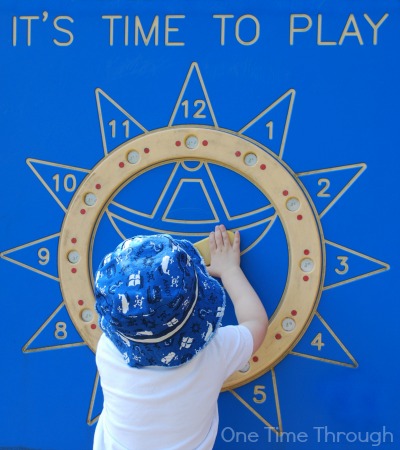
My son is a prime example of a kid that needs time to process and adjust to the fact that something is going to change. Before I started giving him warnings about transitions, he would enter a full-blown state of refusal and upset every time we needed to stop doing something and move onto another activity.
Since I started using this strategy, I noticed that he easily makes most transitions like going to bed, leaving the house, having a bath (not a favourite activity at our house), leaving a playground or fun activity, stopping playing to come to dinner, etc.
All I do is give him a few warnings ahead of time that a new activity is coming up soon.
For big transitions like bedtime, I will give him a 15 minute warning, a 10 minute warning, a 5 minute warning and a 2 minute warning. I’ll say something like, “In 5 minutes it will be bedtime.” For smaller transitions, he only needs one warning.
If your child has difficulty making transitions – give this a try and see what happens!
Strategy #3: Teach Your Expectations
If we want our children to behave in a certain way, it’s only fair that we make sure they understand what we want, right? As a teacher, I always know this to be true and spend a great deal of time at the beginning of the school year with my students discussing expectations.
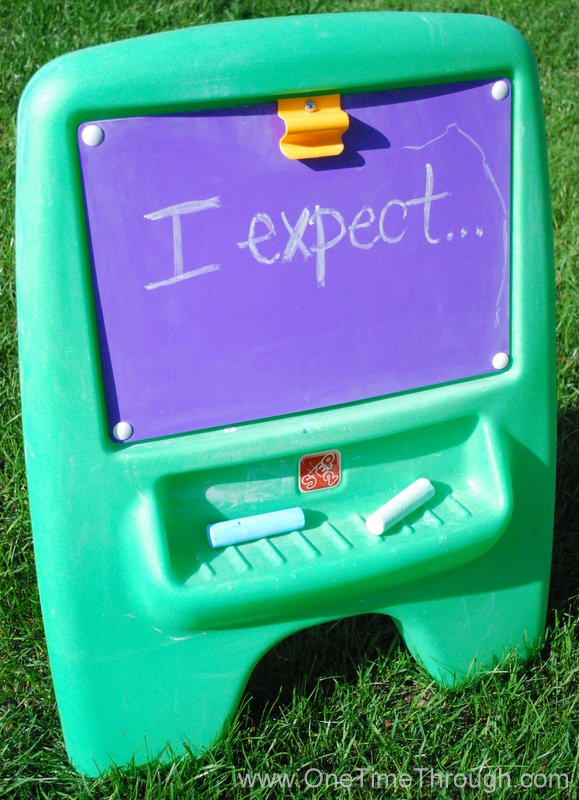
You can do this with toddlers and preschoolers also! Just keep it simple. Tell your child what you WANT them to do.
I found the phrase, “I expect….” really helpful. Think of all the applications!
“I expect you to use your words when you are angry, not your hands.”
“I expect you to stop ______ when I ask you to stop.”
“I expect you to cooperate with me when it is time to get ready to leave.”
Whenever there is a situation that Onetime struggles with, I often have this discussion before the situation. For example, my son gets very enthusiastic at music class and likes to dance. However, he’s not very good at being aware of the space around him and sometimes bumps into the other kids.
When I realized that this situation was difficult for him, I started telling him before class that I wanted him to enjoy music class and dancing, but that I expected him to watch out for the other kids and I expected him to be careful not to bump into them.
His behaviour improved dramatically! I just have to remember to have that discussion before every class. There was one day that we were rushing and I forgot, and it was back to crazy dancing and bumping! It’s a work in progress!
Strategy #4: Give in Fantasy What They Can’t Have in Reality
(from “How to Talk So Kids Will Listen, and Listen So Kids Will Talk“)
Here’s a great strategy for a situation where your child is unhappy and there’s nothing you can do about it.

For example, when you’re in the car driving home from somewhere and your child says they are thirsty and you forgot to pack that extra drink today! Ughhh…
After acknowledging their feelings, try giving them what they want in fantasy! My son absolutely LOVES this!
For the thirsty example above, I would say something like…
“I know it’s frustrating when you’re thirsty and you have to wait for a drink. I wish I could give you a drink right now. In fact, I wish I could give you a bucket of apple juice, NO – wait…a bathtub of apple juice! NO – wait… a whole car full of apple juice!!!”
At this point, he’s usually laughing and knows that I know he’s frustrated. Somehow it helps!
Other good fantasy wishes that have worked well for me:
“I know you don’t feel tired. I wish we could stay outside ALL day (instead of having a nap). I wish we never had to rest at all! Not even at night!”
“I know you don’t feel like having a bath today. I wish I could make this bathwater turn into jello! Wouldn’t that be fun? A jello bath!?!”
Strategy #5: Give Choices
I saved the best for last! You’re probably already doing this one, but maybe some of my ideas might help you out.
Giving kids choices seems to help them feel more in control of things. The more control kids have over their own lives, the happier they are!
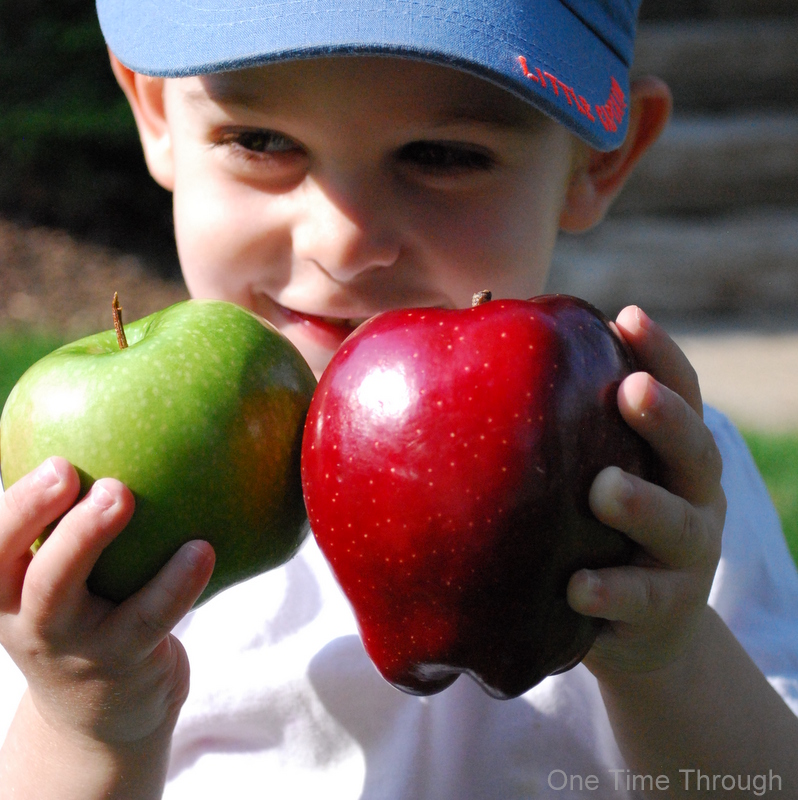
Problem: Child doesn’t want to go up to bed tonight.
Choice: “Do you want to go upstairs like a truck or like a helicopter?” (we proceed to “fly” up the stairs!)
Problem: Child doesn’t want to get dressed to go out.
Choice: “What do you want to put on first? Your shoes, your sweater, or your hat?”
Problem: Child doesn’t want to brush his teeth.
Choice: “Do you want to use your green toothbrush, or your blue one?”
Problem: Child doesn’t want to go down the slide properly at the park.
Choice: “Do you want to go down the slide on your bottom, or go swing on the swings instead?”
Sometimes I have to get a little creative. But if I try, I can usually think up a choice for just about any activity that Onetime doesn’t want to do! It ALWAYS helps!
Oh, and sometimes the choice is just…”Are you going to come with me on your own? or am I going to pick you up?”
I would LOVE to hear what you think about these 5 strategies. Have you tried any of them? Have they worked for you? Do you have any other great tips for proactively dealing with challenging behaviour? Leave a comment below.
To find even more fun and educational activities as well as positive parenting tips, follow me on Facebook, and Pinterest.
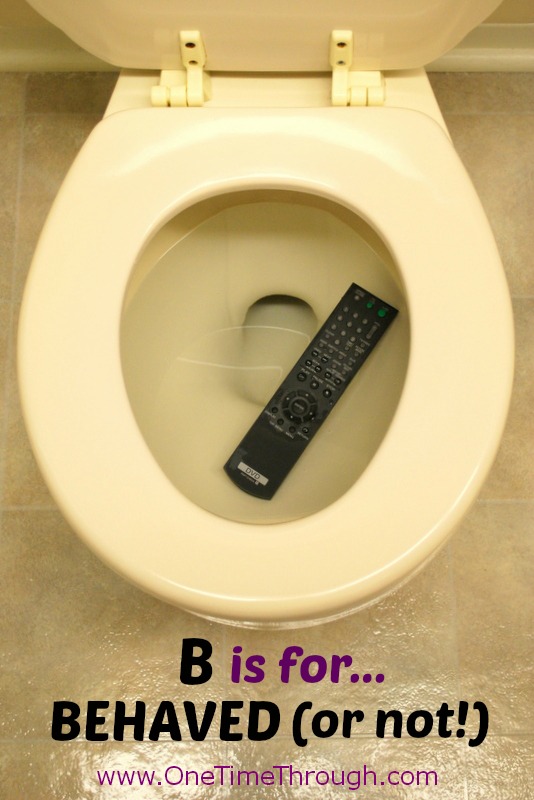
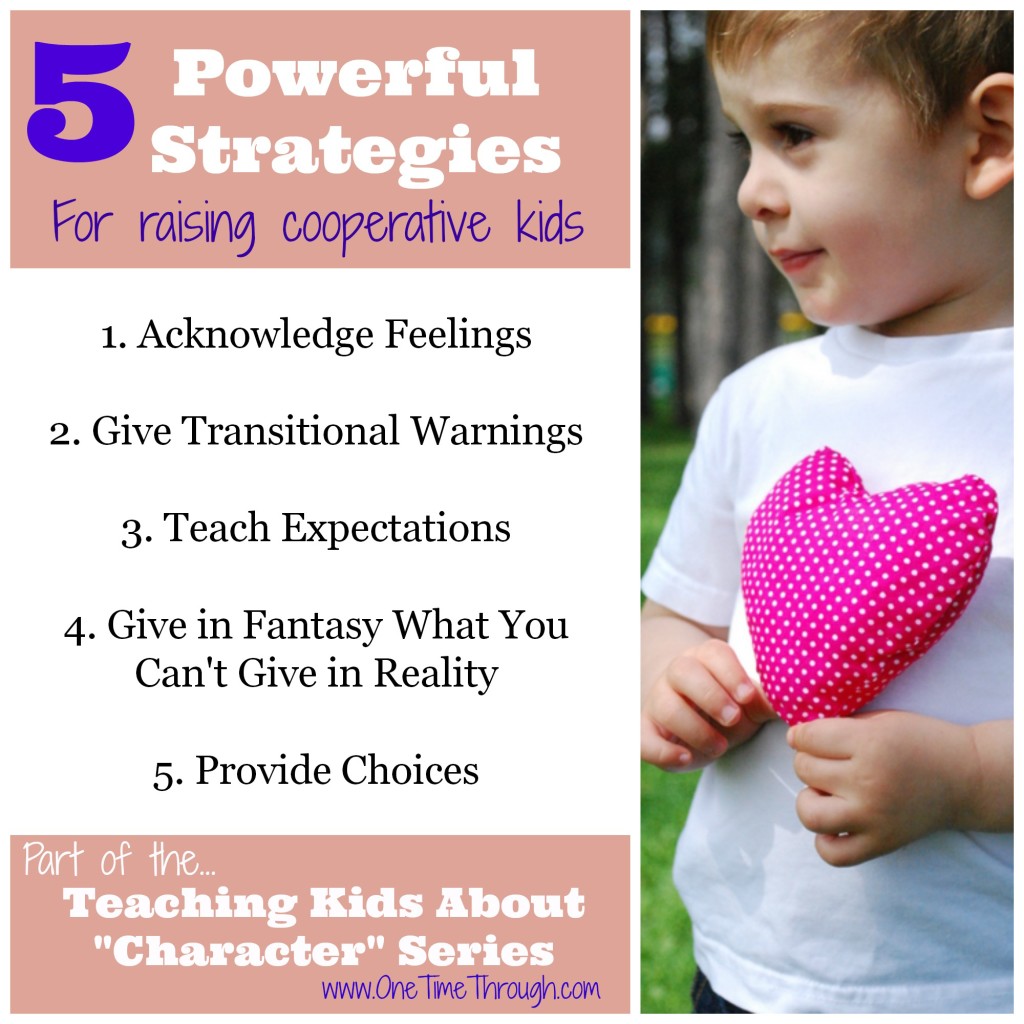

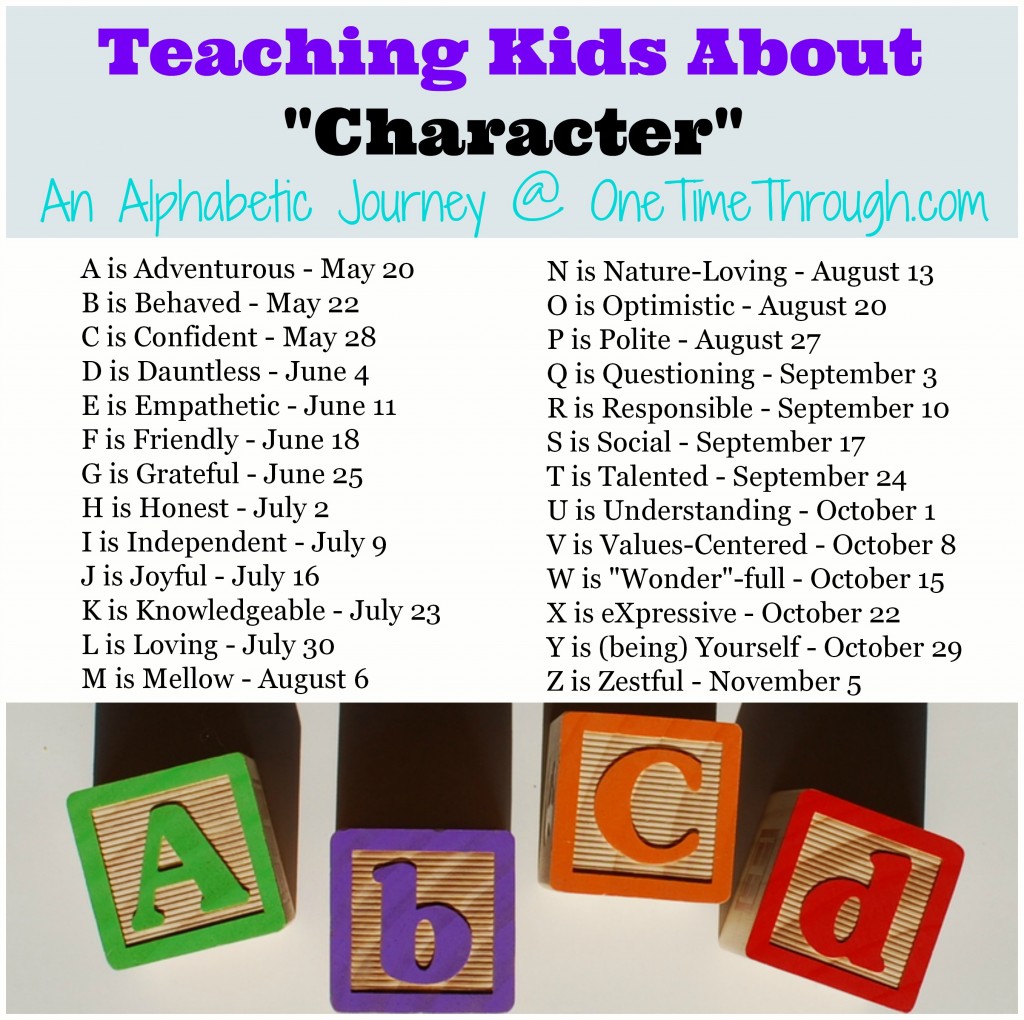
Such a fascinating post Sue and relevant too given our 3 YO is refusing to sleep at the moment! I did laugh at the remote in the toilet though! Great post, thank you for sharing with #alphabetphoto
Thanks for dropping by Charly Dove! Yep – that photo was inspired by a real event for sure! Thanks for dropping by and reading! Good luck with the sleep thing – hopefully it’s just a phase!
I’m loving this series so far! The transition warnings have always worked well for us. Even when my daughter was a toddler and had no idea what “5 more minutes” meant, I would tell her we’d be leaving then and rarely got an argument!
Thanks for dropping by Emma! Yep – it’s amazing how well they work – even when the kids don’t really have a concept of time yet. I figure it helps my son learn a bit about time and numbers too which never hurts!
I just recently found this blog and I love it! I especially appreciate your approach of reading books, absorbing information from lots of different sources and finding what works for you. That has been my approach to life from the time I was young, so I admire that trait in others.
We already use most of these techniques and find them extremely helpful. I love the part about expectations the most, however. I’ve coached teenagers for years, and always took time to clarify my expectations for them, but hadn’t really put that into practice with my 2-year old daughter, It makes so much sense though, because my husband and I certainly have expectations for her. Why shouldn’t we verbalize those as much as possible so that we can all be on the same page. So simple and yet I never thought to just start having those conversations with her…
Transition warnings are huge in our house! Many times, I tell my daughter “It’s almost time to stop, so choose one more thing to do.” We’ve found this to be more effective than even time warnings at this stage. Maybe because it’s a combination of transition warning/choice! But whatever the reason, it works, and usually the one more thing she chooses to do is something small like splash one more time in the pool, kiss the puppy or take one more ride down a slide.
I’m hooked on your blog, and especially this series!
Thanks so much for taking the time to leave a comment Teresa! I LOVE your idea of giving your daughter the transition/choice. What a great phrase to use – I can see why it works so well. Thanks for sharing. And thanks for the positive feedback – it’s really nice to hear! Hope you continue to follow along with the series – I’d love to hear your thoughts again! Best, Sue x